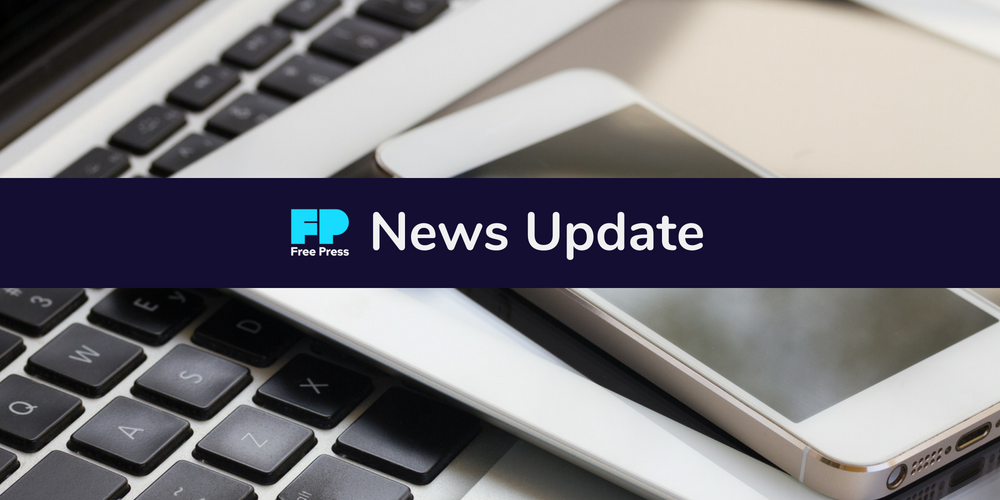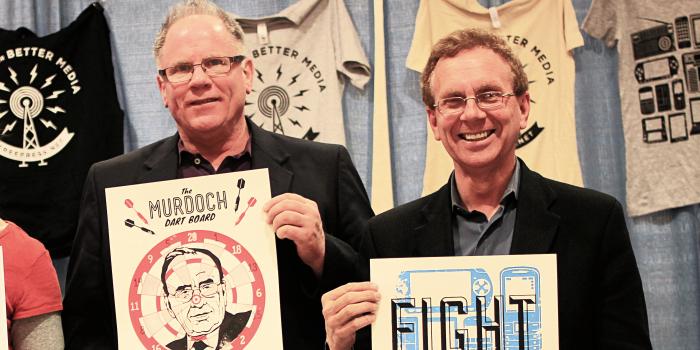Free Press Action Urges Congress to Do More to Prevent Communications Failures During Disasters

WASHINGTON — What follows is the spoken testimony of Free Press Action Senior Director of Strategy and Engagement Joseph Torres, which will be delivered today before the House of Representatives Subcommittee on Communications and Technology.
The hearing on “Strengthening Communications Networks to Help Americans in Crisis” will explore ways to improve the resilience of broadband and other essential communications systems to ensure that people can contact one another and access critical emergency-response information during disasters.
Torres will testify that the inability of Puerto Ricans to communicate contributed to the massive death toll following Hurricanes Irma and Maria, which struck the islands in 2017. He will underscore Free Press Action’s call for the Federal Communications Commission to conduct an independent investigation into all of the factors that contributed to the longest communications blackout in U.S. history — something the agency has failed to do. Torres will also advocate for policies that would prevent similar communications breakdowns following future disasters in the United States.
Torres’ full written testimony is available here (PDF).
Torres’ opening statement:
Chairman Doyle, Ranking Member Latta, Chairman Pallone, Ranking Member Walden, and esteemed members of the Subcommittee, thank you for inviting me to testify about the life-or-death issue of ensuring that communications networks properly serve all people in the United States, especially in times of crisis.
I am the senior director of strategy and engagement at Free Press and Free Press Action. I am here today on behalf of our 1.4 million members in all 50 states, the District of Columbia, and Puerto Rico.
Over the past couple of years since Hurricanes Irma and Maria struck Puerto Rico in 2017, Free Press has worked with allies to ensure that lawmakers and regulators are crafting policies to rebuild communications in Puerto Rico and to hear directly from Puerto Ricans impacted by the disasters.
I am Puerto Rican and I grew up in New York City. Like so many Puerto Ricans growing up in the states, I often traveled as a kid to the islands to visit my grandmother. Four of my Free Press colleagues also have this personal connection to Puerto Rico.
Hurricane Maria — a Category 4 storm — knocked out power and nearly the entire communications network in Puerto Rico. This impacted recovery efforts.
FEMA said it struggled to gain situational awareness and assess the status of critical infrastructure, in part due to Puerto Rico’s communications outages. The president of Puerto Rico’s Association of Emergency Managers told the Associated Press that “the biggest crisis after Maria was communication” and that it “unleashed an endless number of problems.”
Between 3,000 and 5,000 people died as a result of Maria, making it one of the worst tragedies in U.S. history. And the inability of Puerto Ricans to communicate was a factor in the death toll.
My colleagues and I worked with Puerto Rican activists when we traveled to Puerto Rico in 2018 to learn how the communications collapse impacted people’s lives. Residents of Vieques and Comerio told us how the lack of communication limited their mobility and left them without knowing where to search for food, water or medical care — how to reach loved ones or get information about mudslides.
This is why a coalition of Puerto Rican groups and leaders, racial-justice and public-interest groups have called on the Federal Communications Commission to conduct an independent investigation into all the factors that contributed to the islands’ communication crisis. But so far, the FCC has failed to do so.
In contrast, the FCC did investigate the communication disruptions in the Florida Panhandle following Hurricane Michael, also a Category 4 storm. The Commission found that the lack of coordination among wireless and landline service providers, power crews and municipalities prolonged the restoration of service.
We applauded the Commission for conducting the investigation. But we are also troubled by the disparity in treatment when it comes to Puerto Rico. We believe the longest known communications blackout in modern U.S. history warrants an investigation.
Earlier this month, in a letter to Representative Yvette Clarke, Chairman Pai praised the telecom carriers for applying the lessons they learned after Hurricane Maria to rapidly restore service in areas of Puerto Rico impacted by the recent earthquakes. But the lessons the chairman alludes to have yet to be made public.
Meanwhile, Commissioner Jessica Rosenworcel criticized the Commission last September for not having a “clear picture” of how telecom carriers — which have received federal funding from the FCC — have spent that money and for not knowing the precise status of communications facilities on the islands. She called this approach an “an invitation for waste.”
We urge this subcommittee to use its oversight power to ask Chairman Pai to publicly share the lessons the carriers and the Commission have learned from Hurricane Maria.
Puerto Ricans deserve to know the truth about what happened. They deserve a comprehensive investigation into all the factors that contributed to the communications crisis in Puerto Rico. They deserve to know the FCC’s response. They deserve to know the industry's response.
Learning about what happened in Puerto Rico is critical to adopting policies to prevent this from happening again — not just in Puerto Rico but everywhere else in the country. The intensity of storms and extreme weather is only increasing due to climate change. And hurricanes like Maria may become the norm.
That is why Free Press Action is pleased that this subcommittee is considering eight bills that address various telecom issues such as resilience. Because improving our communications networks following a disaster is an issue of life and death.




